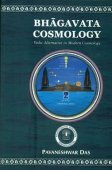Vrija, Vṛja: 2 definitions
Introduction:
Vrija means something in Hinduism, Sanskrit. If you want to know the exact meaning, history, etymology or English translation of this term then check out the descriptions on this page. Add your comment or reference to a book if you want to contribute to this summary article.
The Sanskrit term Vṛja can be transliterated into English as Vrja or Vrija, using the IAST transliteration scheme (?).
In Hinduism
Purana and Itihasa (epic history)
Source: archive.org: Puranic EncyclopediaVṛja (वृज).—A hermit who was born in the family of emperor Pṛthu. Antardhāna and Vādī were the two sons of Pṛthu. A son named Havirdhāna was born to Antardhāna by his wife Śikhaṇḍinī. Dhiṣaṇā who was born in the family of Agni, became the wife of Havirdhāna. Prācīnabarhis, Śukra, Gaya, Kṛṣṇa, Vṛja and Ajina were the six sons of Havirdhāna by Dhiṣaṇā. Of these, Prācīnabarhis became a great Prajāpati. (Viṣṇu Purāṇa, Aṃśa 1, Chapter 14).
Source: Cologne Digital Sanskrit Dictionaries: The Purana IndexVṛja (वृज).—A son of Havirdhāna.*
- * Viṣṇu-purāṇa I. 14. 2.

The Purana (पुराण, purāṇas) refers to Sanskrit literature preserving ancient India’s vast cultural history, including historical legends, religious ceremonies, various arts and sciences. The eighteen mahapuranas total over 400,000 shlokas (metrical couplets) and date to at least several centuries BCE.
See also (Relevant definitions)
Starts with: Vrijana, Vrijani, Vrijanya.
Full-text: Kadambari.
Relevant text
Search found 4 books and stories containing Vrija, Vṛja, Vrja; (plurals include: Vrijas, Vṛjas, Vrjas). You can also click to the full overview containing English textual excerpts. Below are direct links for the most relevant articles:
Rig Veda (translation and commentary) (by H. H. Wilson)
Tulsi and Tunchan < [April – June, 1988]
Parama Samhita (English translation) (by Krishnaswami Aiyangar)
The Bhagavata Purana (by G. V. Tagare)
Chapter 24 - Pṛthu’s Descendants and the Hymn of Rudra < [Book 4 - Fourth Skandha]
Related products
